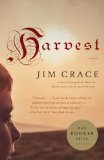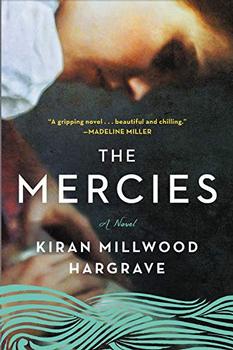Summary | Excerpt | Reviews | Beyond the book | Read-Alikes | Genres & Themes | Author Bio

Upon publication of Harvest, Jim Crace announced he is putting down his pen. Having published thirteen books, and winning many awards (including the Whitbread Prize three times), Crace, like Philip Roth before him, plans to move on.
The title of his final novel is apropos of both the theme of the story and the end of his writing career. It's symbolic of the work he's reaped in nearly thirty years of writing and the harsh reality of the new world order faced by his characters. The "harvest," in both cases, represents the end of one way of life and the start of another.
Even though Jim Crace says that the setting and time of this novel are deliberately vague, Harvest would appear to be set in an insular medieval English village, probably around the 15th or 16th centuries when English wool became big business. The book opens during the final days of the yearly harvest, the villagers giddy with anticipation of the celebratory feast soon to come. The last of the grain is being gathered from the fields, the workers divvying up each family's share - food to last the winter – storing the rest in the barn of the landowner, Master Kent.
Seeing change as inevitable, Master Kent knows he must plan for the conversion from farmland to pasture to accommodate the demands of the growing wool trade. Reluctantly he hires his cousin, Master Jordan, to map the fields and ready for this conversion. It is soon apparent that Master Jordan is not as kind and caring as Kent. Arriving with a plan of his own, Jordan hopes to push things along faster, to raze the village, keeping only those who are essential, dismissing the rest. Along with him comes a cold wind, a menacing air of greed.
The story's narrator, Walter Thirsk, was once a childhood playmate of Master Kent, but is viewed as a foreigner since he was not born in the village. As the two grow older, however, the gulf between them widens. Thirsk goes from friend to worker of the land, with Kent moving from friend to master. After meeting Jordan and learning of his plans, Thirsk is the first among the villagers to understand what's happening, the burden weighing heavily. As a man relegated to outsider status, yet knowing Kent and the upcoming plans for the village better than anyone else, Crace sets Thirsk up to be uniquely qualified to tell the story.
The already slow-paced, murky and heavy plot begins its dark descent the night before the celebratory, post-harvest party. A fire hits the master's barn, destroying a large portion of the crop. Many more dark events take place in a short space of time; one small microcosm of a society undergoing rapid disintegration. It all comes down to a battle between two opposing forces: change as represented by Master Jordan, versus the status quo as represented by Master Kent. Change is not always easy and in this case, the move from traditional farming to the usage of land for pasture sends everyone in its path sent reeling.
As the dust begins to settle, Master Kent and Walter Thirsk are the two left standing. This feels especially appropriate given their relationship and their shared past. Despite the wrenching theatrics that transpire, there might still be room for redemption – and Crace leaves this open to the reader's interpretation.
Crace's writing is sensual with an impressionistic feel, in the sense that cause and effect are often seen through a prism and you get a full picture of the story only when you stand back and take it all in its entirety. We know the time period is significant, a little research revealing the disastrous effects resulting from the virtual overnight growth of the wool trade. The enclosure of formerly common land causes many to go hungry, and the gulf between rich and poor grows ever wider, inviting economic disaster. But in Harvest, none of this is expressly said. Crace merely portrays the feelings, the vertiginous madness of a society coming apart at the seams which, as he explained to me, is a story that is still being repeated today - with small farmers all over the world being forced from their land.
Reading Harvest, I can't help but think what a loss Crace's retirement will be to literature. There are writers who might write well but few are able to craft captivating stories the way he does—ones that rise above place and time. It's by choice that Crace hasn't liked to define his books. With this unique and rare gift, he has consistently managed to pull off compelling fiction without the need for proximate detail. Harvest is a masterpiece, its creator a writer of singular talent. He will be missed.
![]() This review was originally published in The BookBrowse Review in April 2013, and has been updated for the
November 2013 edition.
Click here to go to this issue.
This review was originally published in The BookBrowse Review in April 2013, and has been updated for the
November 2013 edition.
Click here to go to this issue.

If you liked Harvest, try these:

by Kiran Millwood Hargrave
Published 2021
After the men in an Arctic Norwegian town are wiped out, the women must survive a sinister threat in this "perfectly told" 1600s parable of "a world gone mad" (Adriana Trigiani).

by Conn Iggulden
Published 2019
From New York Times bestselling Conn Iggulden comes a new novel set in the red-blooded days of Anglo-Saxon England. This is the original game for the English throne.
Your guide toexceptional books
BookBrowse seeks out and recommends the best in contemporary fiction and nonfiction—books that not only engage and entertain but also deepen our understanding of ourselves and the world around us.